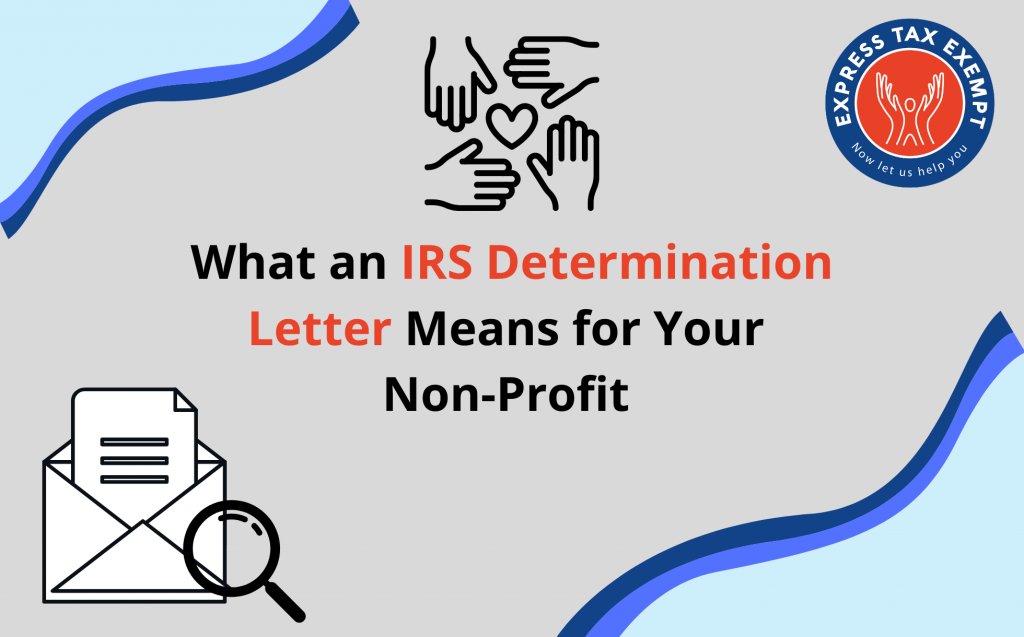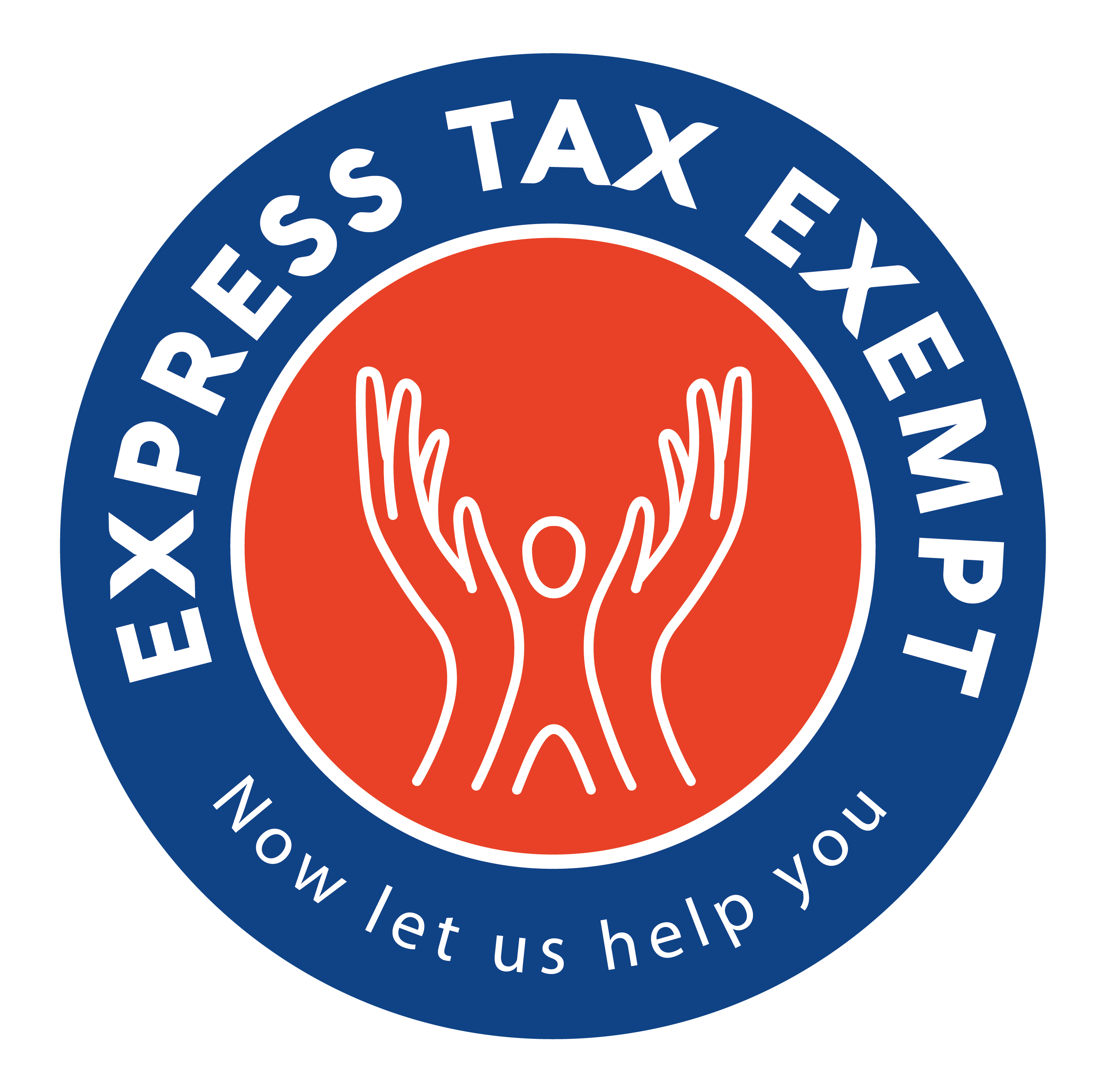What an IRS Determination Letter Means For Your Non-Profit

As a non-profit organization, you work relentlessly to help your community, engage with your donors, and embody the mission of your organization. With all of this on your plate, paying taxes and submitting tax forms is not something you want to be worrying about. Luckily, non-profit organizations can apply for tax-exempt status with the Internal Revenue Service (IRS).
Receiving a tax-exempt status comes with many rewards and allows your organization to gain credibility for your mission. The tax-exempt status allows your business to avoid having to pay income taxes so that your organization can serve your community more efficiently and effectively.
However, with that being said, gaining tax-exempt status is a detailed and time-consuming process that requires annual attention to keep in good standing with the IRS. ExpressTaxExempt is an online e-file provider that can help your organization meet all of your 990 tax filing needs and remain compliant! ExpressTaxExempt provides a safe and secure filing experience for submitting your necessary annual tax returns with ease.
But before we get ahead of ourselves, let’s learn more about applying for tax-exempt status and how it can help your organization:
What does being Tax-Exempt Mean?
Many people mistakenly believe that all nonprofits automatically have 501(c)(3) tax-exempt status. This is not the case. A nonprofit organization can decide whether or not it wants to apply for tax-exempt status from the IRS.
Tax-exempt status means that an organization is exempt from paying federal corporate income tax on income generated from activities that are substantially related to the purposes for which the organization was developed.
It is also important to note that being tax-exempt does not mean you are exempt from ALL taxes. Tax-exempt organizations are still required to withhold FUTA taxes from their employees and pay taxes on income from activities unrelated to their mission, called the unrelated business income tax, or UBIT.
What is the IRS Determination Letter?
If your organization submits an application for 501(c)(3) tax-exempt status, the IRS will respond with a determination letter. If the IRS approves your application for federal tax exemption, you will receive a favorable determination letter. This letter will notify your organization that your application has been accepted.
If your organization’s request for tax exemption is not accepted, the IRS will send you an adverse determination letter. The IRS will provide an explanation as to why your nonprofit does not meet the 501(c)(3) requirements. You will also be given the right to appeal this ruling.
Helpful Information in Your Favorable Determination Letter
If your organization receives a favorable determination letter, that is an exciting and important day! A favorable determination letter is a business document that you will use for a variety of reasons during the life of your organization. Your favorable determination letter will have a lot of valuable information in it that you need to pay attention to. It’s also extremely important to note any ongoing requirements for maintaining the 501(c)(3) status you worked so hard to obtain.
The Date Your Exemption begins
Your letter will include your organization’s effective date of exemption. The IRS will treat your organization as tax-exempt following this date meaning that any income your organization receives will not be subject to federal corporate income tax. This date will be considered your tax year begin date which you will need each year when filing your organization’s 990 series return. If you do not provide the correct beginning date on your tax forms, you risk having your tax return rejected by the IRS.
Accounting Period End-Date
The letter will also include your accounting period end date. The date should align with the date you listed in your application. This date is extremely important to know because your tax returns need to be submitted on the 15th day of the 5th month after your accounting period ends. Missing your filing deadline may result in penalties from the IRS so it’s important your organization is aware of your deadline and always files on time.
If your organization fails to file the necessary form for consecutive years, the IRS may revoke your tax-exempt status.
Public Disclosure
This document is subject to public disclosure, which means that you must allow the public to examine and copy the letter if requested.
Annual Filing Requirements
Your letter will include information on your organization’s annual filing requirements. Even though your organization is tax-exempt, the IRS still requires that you file annual returns. Most nonprofit organizations must file forms from the 990 series such as 990, 990-EZ, or 990-N. As mentioned above, it’s important to know your filing deadline and to always submit your returns on time so that your organization can uphold its tax-exempt status and remain in good standing with the IRS.
ExpressTaxExempt supports e-filing of Forms 990, 990-N, 990-EZ, 990-T, 990-PF, CA-199, and 1120-POL. ExpressTaxExempt has several beneficial features to make your filing process simple and easy!
ExpressTaxExempt
If your organization receives tax-exempt status from the IRS, ExpressTaxExempt is here to help you remain tax compliant. We know this is a huge achievement and we want to help your organization continue to succeed!
ETE offers free tools such as a “Form 990 Finder” and “Form 990 Due Date Calculator” so your organization can easily keep up to date with all of your filing requirements. Now that the IRS mandates electronic filing for 990 series forms, choosing a trusted e-filing service such as ExpressTaxExempt will ensure your organization’s returns are filed quickly and easily.
Staying tax-exempt is easy with ExpressTaxExempt!

